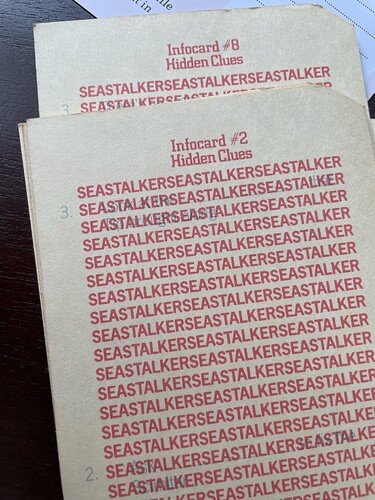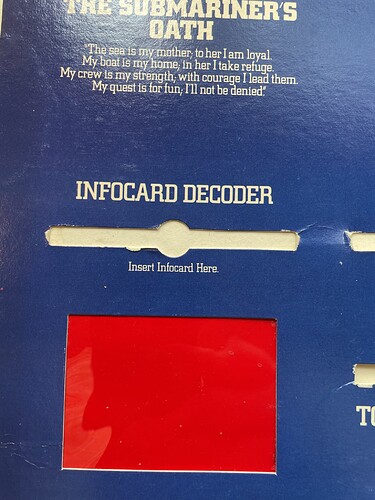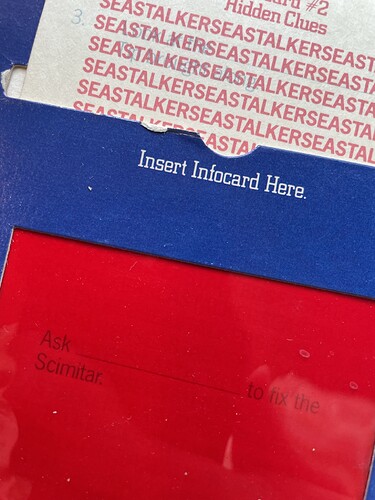A thing that has come up lately is ASCII art and its incompatibility with screen readers. It raises issues in several Infocom games that would otherwise be completely accessible via screen reader (Zork III, Seastalker, Infidel). It has also garnered discussion for at least one game currently in development.
I am having some difficulties evaluating another screen reader situation, and would like to hear some thoughts, advice, experiences that might lead to a solution:
There are, I’m sure, multiple occasions when the use of hidden and/or spoiler text are beneficial to readers and players. The “Invisiclues” format is a tradition that is nearly as old as Zork I. The IDP hosts *.Z5 Invisiclues that work very well (and would be nice to have online at IFDB). More recently, Dan Fabulich has made some very nice Invisiclues hints right here on this forum, using the “blur spoiler” feature.
Problem: My configurations of JAWS, NVDA, and Narrator all seem to read through “blur spoiler” text. I presume this is because, just as the name says, it is blurred. The reader application does not rely on visual data, so it “sees” right through the blurriness.
Aside: I have no expertise in configuring screen readers, so it could be configuration.
Problem 2: Screen reading z-code Invisiclues is a bit fiddly. Parchment is the only one that works out of the box (presumably because reading browser text is a universal need). Perhaps Frotz and Gargoyle could do the same with configuration changes, not sure.
What brings me to this post is the fact that Seastalker comes with these small cards in which text is masked by an overlay of red text. They can be read by viewing them through a red film. I am trying to provide an accessible version of these texts.
The game references the cards by card# and line# (the references are not in order), so a plain text listing of the entries would contain spoilers. It is a scenario that calls for a hidden text solution.
I can take pictures if needed.
The easiest answer for me, of course, would be tagged text on a web page. IFDB spoilers actually do cover text with text, so they work, but IFDB isn’t really made for presenting this kind of information.
I could do the Invisiclues thing with Inform (I’m sure there are source examples for the existing resourses), though that would be slow going for a long-retired OS guy like me.
If option two is the best, then I am wondering if someone more knowledgeable about screen readers can confirm that Parchmet is, in fact, the only option at this time.
Anyway, I’m quite sure that I’m out of my depth, so any advice would be welcome. I’ll answer questions as best I can.


